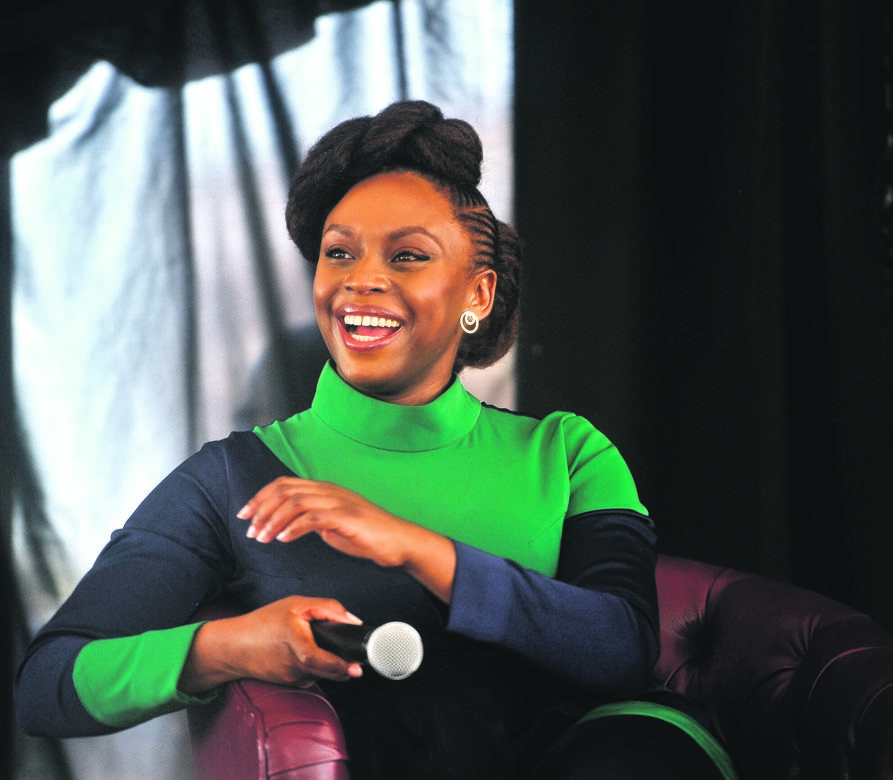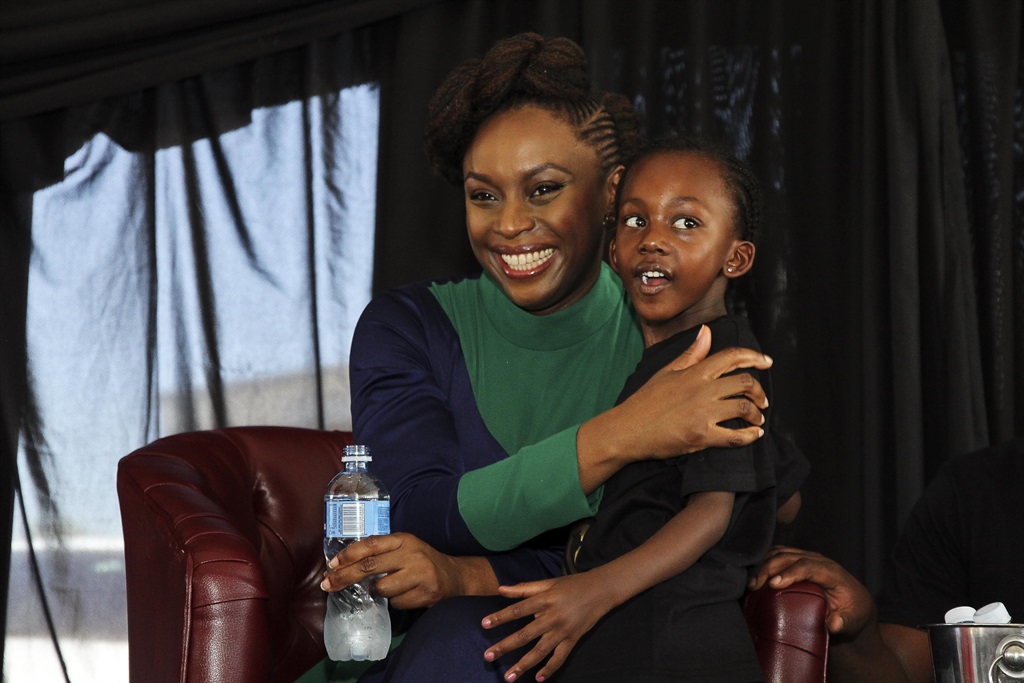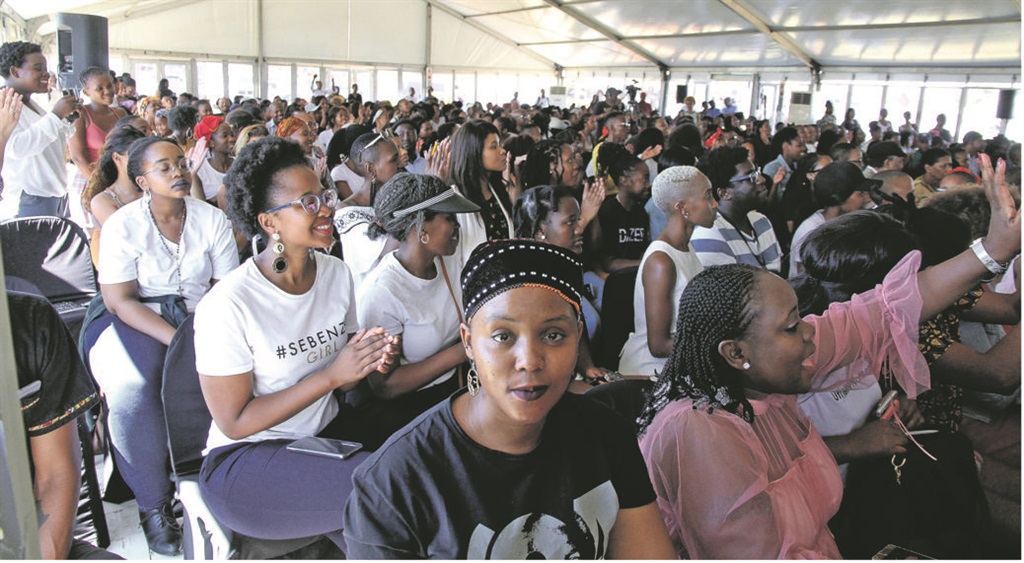
After her appearance at this week’s Abantu Book Festival – held at Eyethu Lifestyle Centre in Mofolo, Soweto – Nigerian author and feminist Chimamanda Ngozi Adichie has promised to return for more.
Adichie, who was one of the event’s most anticipated guests, drew an overflow of attendees to her session on Friday. She was in conversation with feminist, author and academic Professor Pumla Gqola.
The session began later than expected, thanks to the current South African reality of technical glitches brought on by load shedding.
But the excited audience waited patiently and responded enthusiastically to award-winning storyteller Mama Gcina Mhlophe, who led the room in song and impromptu literary games.
Young black women, men and members of the LGBTQI community, thrilled at the prospect of seeing the figure who has influenced their feminism, cheered as the esteemed author finally took to the stage.
Clicks and laughter punctuated her conversation with Gqola as audience members reacted to Adichie’s comments about her work and experiences.
They also used the opportunity to ask her about her feminist views and her opinion of trans women. This after an interview on Britain’s Channel 4 News in which she had said: “When people talk about, ‘Are trans women women?’, my feeling is trans women are trans women.”
Critics said her remarks implied that trans women were not real women – a stereotype that transgender people often have to contend with.
So, when asked to clarify the above statement at the Abantu Book Festival, Adichie said: “I think trans women make a fine argument for feminism. We shouldn’t be limited by the bodies we are born with.”
The author also used the opportunity to explain her initial reluctance to return to South Africa.
“My first visit in South Africa was the reason I became hesitant to return. I was not getting South Africa and I had read so much about it. When I was growing up, it [apartheid] was a thing. My parents and academics talked about it, and Mandela was this icon.
“And then I came here and people were telling me: ‘Well, now it’s a rainbow nation – blacks, whites and Indians. I went to Robben Island and a former prison guard said he is angry at the new South Africa … And then I went to Cape Town.
“I’ve been to Ghana, been to Kenya … there’s an Africa infrastructure that’s familiar. I got to Cape Town and I was confused.
“But my second visit was much better. I get excited by things many may view as silly. For example, the driver who picked me up from the airport: I learnt he could talk eight of the 11 official languages; he was on the phone and kept using different languages, and that excited me.
"On top of this, I now feel like black people in South Africa are starting to embrace themselves and own it.”
The interviews that Adichie led with two former US first ladies – Michelle Obama, in London this week; and Hillary Clinton, in New York back in April – were also probed.
Gqola asked for Adichie’s response to her critics, who had slammed her for being “too charming and reserved in holding them [Obama and Clinton] accountable”.
A visibly surprised Adichie began by saying she was not exposed to critiques of her until they generated a loud noise, as she is not on social media.
She said she was proud to have been seen as charming, referring to her two interviewees as women she loves and admires – “unapologetically so”.
While agreeing that the two women were flawed, she said this did not change her love and high regard for them, adding that she saw no reason to hold the wives of controversial figures responsible for the decisions of their spouses who were in office.
Adichie also described how she wanted to craft a feminism rooted in precolonial Africa.
Rather than being drawn to feminist theory, she said she was a storyteller more interested in people’s day-to-day lived experiences. She also encouraged the inclusion of men and boys in conversations on feminism.
As the conversation neared its end, she warned audiences against idolising public figures and not giving them space to evolve or have faults.




 Publications
Publications
 Partners
Partners










